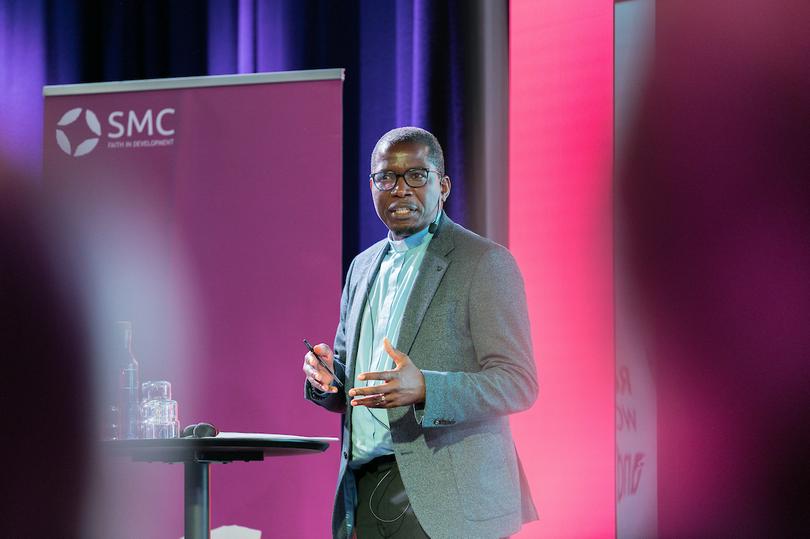At the event "Called to Transformation – a Conversation on Ecumenical Diakonia," held on August 22 in Stockholm, Rev. Dr. Kenneth Mtata, World Council of Churches (WCC) program director for Life, Justice, and Peace, spoke on "Ecumenical Diakonia in a Polarized World: From Stockholm (1925) to the Present."
Reflecting on a century of ecumenical diakonia, Mtata described anniversaries as "fertile spaces for memory," inviting gratitude and critical reflection. He highlighted three key milestones being commemorated in 2025: the 1700th anniversary of the Council of Nicea, the 40th anniversary of the Kairos Document from South Africa, and the centenary of the 1925 Life and Work conference in Stockholm.
The Council of Nicaea affirmed the full divinity and humanity of Christ and the mystery of the incarnation. Christian service, or diakonia, is not peripheral but central to the church's identity, Mtata said, noting that the incarnation itself grounds the church's calling to serve a suffering world.
He underscored the prophetic role of diakonia, recalling how the Kairos Document distinguished between state theology, church theology, and prophetic theology—challenging the church to confront injustice.
Tracing the trajectory from 1925, Mtata noted that the Life and Work conference sought "common practical work" under the slogan "Doctrine divides, but action unites." Leaders like Nathan Söderblom and Adolf Keller balanced urgent humanitarian relief with deep theological reflection, grounding ecumenical service in scripture.
By the late 1930s, this foundation shaped the Oxford Conference (1937), which, in the shadow of fascism, prepared for the formation of the WCC by joining Life and Work with Faith and Order. During the Second World War, the same legacy compelled churches to organize refugee relief and humanitarian responses—work that shaped the WCC's earliest commissions.
As many countries in the Global South gained independence, voices from the region began reshaping ecumenical diakonia in the 1960s–1980s. Church leaders such as John Gatu of Kenya and Gudina Tumsa of Ethiopia challenged paternalistic patterns in mission and diakonia, urging authentic partnership and local agency. The WCC Assembly in Vancouver (1983) reframed diakonia as addressing the "overall brokenness of humanity," rather than a one-directional service from North to South.
These developments led to growing calls for global coordination. From the 1980s onward, churches and agencies began forming joint structures for humanitarian engagement, culminating in the creation of ACT International and, in 2010, the establishment of ACT Alliance as a global network for ecumenical diakonia.
Mtata then turned to today's challenges. He identified decoloniality, holistic transformation, shifting funding models, secularization, digital disruption, and the climate crisis as critical issues shaping the future of diakonia.
He called for reclaiming the soul of ecumenical diakonia in an increasingly professionalized humanitarian sector. "Ecumenical diakonia must be more than efficient service delivery," he said. "Its unique value is rooted in theological foundations, motivated by the incarnational love of God, and operating within the fellowship of the global church. This requires intentional investment in faith and religious literacy for all practitioners."
Mtata also stressed the need to update outdated humanitarian structures and rethink power dynamics to empower local churches. Finally, he emphasized that diakonia should be rooted in the church's local self-understanding, linking local initiatives to wider societal structures for greater impact. "This is the future of prophetic diakonia," he said.












